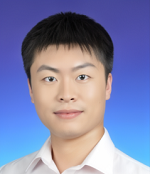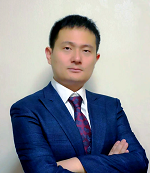SPECIAL SESSION
Special Session: Integration of Communication and AI
By leveraging the powerful data processing and learning capabilities of AI, new vitality is injected into the development of 6G. New network functional components with AI capabilities are added. Network capability components with AI control and coordination are enhanced, which will further improve the overall AI capabilities of the network. With the development of large model technology, a new stage of integration between communication and artificial intelligence has been opened, further promoting the realization of ubiquitous intelligence. At the same time, it is necessary to consider ensuring the effectiveness and reliability of AI algorithms in communication networks, improving the transmission efficiency of models and data, and reducing energy consumption.
Related topics: (此专题涉及的征稿主题)
Integration of AI and wireless communication
Endogenous intelligence
Semantic communication and intelligent precision network
Network Digital Twin
Intelligent resource allocation
Network Architecture of NetGPT
Multi-modal sensing and perception for Low-altitude aircraft
Intelligent UAV perception and control technology
Low altitude intelligent networking
Cognitive network of intelligent robot
Intelligent driving and vehicle road cloud integration
AI Communication and Intelligent Manufacturing
Integration and Application of Unmanned Systems
Submit Method:
1, Submit it via the link: http://confsys.iconf.org/submission/icece2025 (after entering the link, click on the corresponding topic)
2, Send your manuscript to icece_conf@vip.163.com with subject "Submit+Special Session-1+Paper Title". (请通过邮件发送稿件,邮件题目:Submit+Special Session-1+Paper Title)
3, Submission deadline: September 25, 2025


Peipei Wang received the Ph.D. degree from the Baishi University, Seoul, Korea, in 2024. From July to August 2018, he was an visiting scholar with the University of Hertfordshire, UK. From July to August 2017, he was an visiting scholar with California State University Northridge, USA. Currently he is an assistant Professor with Shanghai Open University, Shanghai, China. His research interests include optimization methods for artificial intelligence and big data.

YANG WANG received the Ph.D. degree in information and communication engineering from the Shanghai Institute of Microsystems and Information Technology, Chinese Academy of Sciences, Shanghai, China, in 2015. He is currently an associate Professor with the Shanghai Normal University of Information Science and Technology, Shanghai. Her current research interests include electromagnetic inverse scattering for imaging and computational processing.

Liang Yu received the Ph.D. degree in Acoustics and Array Signal Processing, University of Lyon, France in 2015. From 2015 to 2018, he was a Postdoctoral Fellow of School of Mechanical and Power Engineering of Shanghai Jiaotong University, Shanghai, China. From 2018 to 2023, he was an assistant researcher with the Shanghai Jiaotong University, Shanghai, China. Currently he is an Professor with the School of Civil Aviation, Northwestern Polytechnical University. His primary research focuses on mechanical equipment acoustic perception and intelligent information processing, with an emphasis on advancing acoustic measurement, fault diagnosis, and intelligent signal processing methods for mechanical equipment.

